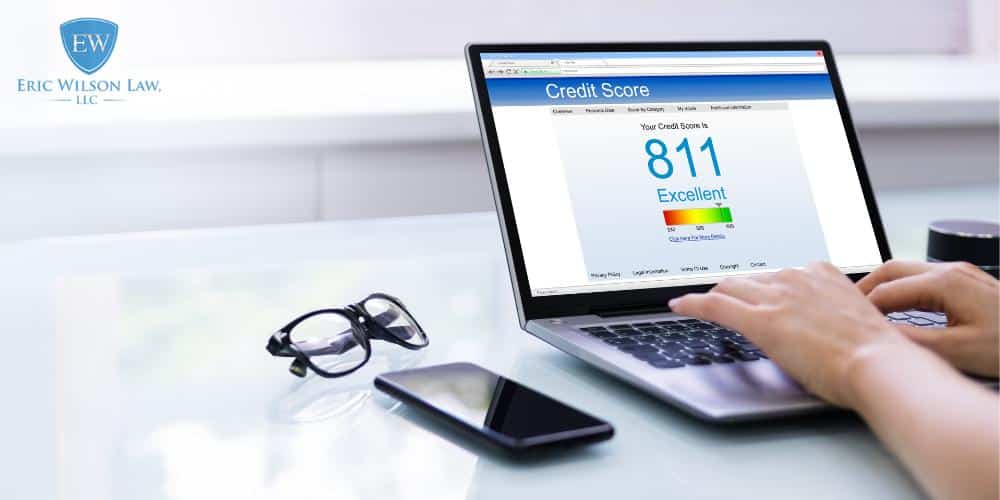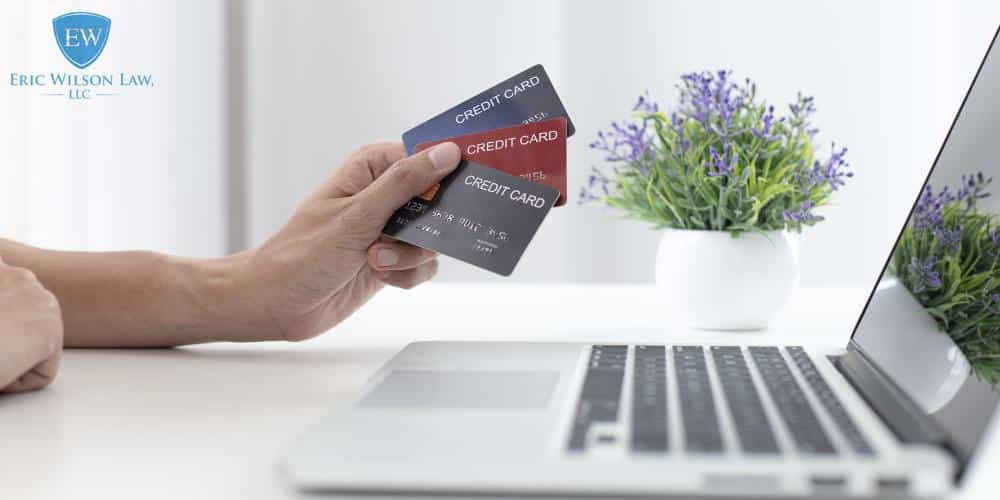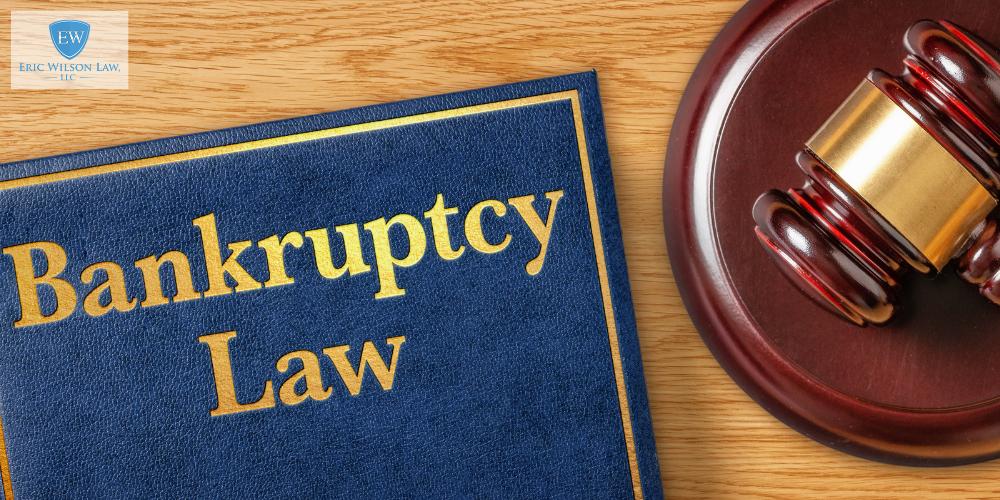Rebuilding Credit After Bankruptcy
There are many situations that may cause someone to file for bankruptcy. With around 340 million Americans carrying some form of debt, bankruptcy and its different forms may be more common than you think. It’s important to establish that bankruptcy is not a declaration that you’ll never be in good financial standing again — just that it may take some time. Bankruptcy is often a way to recoup some amount of losses for both the debtor and the creditor, and settle large, unpayable debts. Once these are settled, you can focus on rebuilding credit after bankruptcy.
Your credit report is an important part of your financial profile, as it’s what banks and other lenders look at to really understand who you are financially. Your credit score can be crucial in securing a home, vehicle, and other types of loans and accounts. While bankruptcy reflects negatively on your credit score, this doesn’t mean that declaring bankruptcy will torch your credit score forever. There are several ways, both big and small, that you can start to rebuild credit after declaring bankruptcy.
If you need help with debt relief and fixing your credit report, call Eric Wilson Law at 205-349-1280 today.

What is a Credit Report?
A credit report is a collection of your financial history, put together by one of the three major credit bureaus — Equifax, Experian, and TransUnion. Your credit report will list several things, including:
- Hard inquiries;
- Public records;
- Account balance;
- Personal Information;
- Credit limit;
- Monthly Balances;
- Payment histories.
All of these things are factored into your credit score, which is an evaluation of how you manage your finances, so that other institutions can understand your financial risk profile. Each of the three credit bureaus evaluate your credit report slightly differently, which can cause small discrepancies in your credit score between bureaus. The best way to get the most accurate idea of your credit scores is to compare them together. You are entitled to one free credit report per year from each bureau — however, there are several online institutions that will give you unofficial reports of your credit score. These can be good for tracking big changes, but likely won’t be what financial institutions are looking at.
Credit Report vs. Credit History
While these terms may sound interchangeable, they are different things. Your credit history is where things like the age of your accounts and current and past bankruptcies will show up. It’s important to note that credit history is different from payment history. Payment history tracks your monthly payments and late payments, while credit history tracks your history of managing debt. This isn’t a huge difference, but they are evaluated differently for your final credit score.
This history typically makes up around 15% of your credit score, though this number may be slightly higher or lower depending on which of the credit bureaus you’re working with. Credit history is one of the harder metrics to improve when it comes to rebuilding your credit score, as past transactions can’t typically be altered.
Why is Having Good Credit So Important?
You’ve probably heard the words “good credit” and “bad credit” thrown around a lot in your adulthood. But what exactly is good credit, and why is it important? Good credit is considered any credit score between 670 and 739, across any of the consumer credit bureaus’ credit scoring models.
Good credit is important because you’re likely to score better terms on loans with higher credit. This is because you’re seen as more trustworthy by lenders. Higher credit means that you’ve likely paid your monthly payments on time, you have low credit card balances, and your credit utilization ratio is under 30%, which is the optimal range. All of these things tell lenders that you are more likely to pay off your debts in a timely manner. Many credit unions and other financial institutions often use credit scores not only to determine whether you qualify for a loan, but also at what interest rate your loan will be set at. The higher your credit score, the lower your interest rate and vice versa.

How a Bankruptcy Filing Can Affect Your Credit
Bankruptcy can be a great financial option if you are struggling under debt, however, it very negatively impacts your credit report. Not only does filing for bankruptcy impact your report negatively, but circumstances that may lead you to file for bankruptcy can also have a negative impact on your credit score. In order to be eligible for certain types of bankruptcy — either Chapter 7 or Chapter 13 — you’ll likely need to have been in delinquency for a while. This means you have not been making timely payments on your debt. This negatively impacts your payment history, which makes up a whopping 35% of your final credit score.
Additionally, bankruptcy will remain on your credit report for up to seven years. This means that, even if you’ve recovered from your bankruptcy, lenders will still see that you’ve gone through the bankruptcy process before, which can harm your borrower profile. It’s important to check your credit reports regularly, so that you know when bankruptcy has been removed.
How to Rebuild Credit After Bankruptcy
Listed below are the best ways to rebuild credit after bankruptcy.
Make Timely Payments on All Your Bills
As we’ve mentioned, payment history is 35% of your final credit score. This is by far the biggest chunk of your score. But your payment history isn’t just your debt payments, but payments on all your bills. This includes your rent, utilities, auto loans, and any recurring bills you have under your name. You can boost your payment history by making sure you pay all of your outstanding bills on time. You can do this by automating payments, or setting up alarms to pay bills the day before.
Apply for a New Line of Credit
Applying for a new line of credit can be a good way to inject good habits into your financial routine. A new line of credit represents that you’re in good standing with a lender and gives you an opportunity to make your credit card payments on time, which boosts your payment history over time. This is a great strategy if you know you can pay off the entire balance of the card each month.
If you’re finding issues getting approved for a new credit card, then you might try a secured credit card. Secured credit cards function like a traditional credit card in the way that you’ll still have to make monthly payments, and you’ll have a certain credit limit. What makes secured credit cards different is that you put a down payment before you open the account. This down payment — say, for example, $500 — will act as your credit limit, as well as a protection from the lender for missed payments. If you miss a monthly payment, then the down payment you put down to open the card will be used. You can receive the down payment from your secured credit card back if you close the account in good standing, meaning you don’t owe anything on the card.
Ask a Loved One to Co-Sign on a Credit Card or Personal Loan
Co-signers can be an incredible boon for someone who may have issues getting approved for a new loan or credit card. There are several reasons to need a loan or new line of credit after filing for bankruptcy, such as unexpected medical bills and other unexpected expenses. There are also credit builder loans that you can get to specifically help you with your credit after an event like bankruptcy. Co-signers are basically back up insurance for the credit card issuer or loan company. Meaning that if you, the primary signee, can’t pay the monthly payment, it then defaults to the co-signer. This means it’s incredibly important that you pick your co-signers carefully, and communicate with them openly about your debt management plan. This way you’re not leaving someone in the lurch if you miss payments.
Create an Emergency Fund
An emergency fund is exactly as the name sounds — a savings account with funds that you only use for emergencies. Finance professionals disagree on how much an emergency fund should contain at any one time, but setting the goal to be able to cover one month of all your bills is a great place to start. This fund improves your credit after bankruptcy by providing you with funds you can use to pay off debts that your monthly income may not cover after bills, and increases your overall net worth.
There’s no wrong way to start an emergency fund. You may want to shop around for a savings account that will yield the best results. For example, you’ll likely not be needing to withdraw from this account very often, so opening an account with a required minimum or withdrawal limit may not be the worst thing, especially if it has a higher APY.
Become an Authorized User on Someone Else’s Credit Card
Becoming an authorized user on someone else’s card can be a great credit builder. When you become an authorized user, you will have access to the card, without being able to make changes to the account. You will also inherit the credit score of the primary user. This can be great if they have a better score than you — and a catastrophe if they have a worse score than you. Before you become an authorized user on someone else’s card, be sure to have a conversation with them about their credit habits, interest rates on the card, and general personal finances. This will allow you both to have a good idea of what becoming an authorized user will mean for both parties. You can have an authorized user on both a secured credit card and unsecured, or traditional, cards.
Create a Budget
By creating a budget, you’re becoming more mindful of your finances. This helps improve your money literacy, as well as helps you keep an eye on your credit report. You can tailor your budget to the specific goal of rebuilding credit after bankruptcy, by allocating funds to paying down debts, making on time payments, or creating an emergency fund.
There are several types of budgets and budgeting tools, available to you across the web, both free and at a premium. You can even choose to make a pen and paper budget, if that is what best suits you. Some budgeting types for you to use could be:
- Incremental budgeting: This is one of the most common types of budgeting, where you compare the last month’s spending to the next month’s budget. This helps you understand where you can cut spending, or increase it, depending on your spending habits.
- Pay-yourself-first: This budget prioritizes savings by putting money away in a savings account before spending anywhere else, including bills. This is a great model for those trying to build up an emergency fund.
- The envelope method: This is a budgeting method that can be done with either physical envelopes, or digital organization. This method involves labeling different envelopes for different types of spending, and allocating funds to each category specifically, and only spending that amount. Doing this with physical bills and envelopes can be a great way to ensure you don’t overspend.
It doesn’t matter which budget model or what tools you use when it comes to budgeting — as long as you create something sustainable and realistic. Any kind of budget is better than no budget at all.
How Long Does it Take to Rebuild Credit After Bankruptcy?
The straight forward answer to this question is that it depends. Depending on what kind of bankruptcy you’ve filed for, when you’ve filed it, and what your financial situation is after the fact, it could take months, up to years. While bankruptcy will stay on your credit report for a set number of years, that doesn’t mean you can’t start to build credit in the meantime.

Call a Tuscaloosa Bankruptcy Lawyer at Eric Wilson Law Today
Don’t let bankruptcy consume you. Making a plan to build credit as soon as possible after settling your bankruptcy, and working with a qualified team are the best things that you can do for your financial health. While bankruptcy can inspire feelings of shame or stress, having something constructive to work toward, like good credit habits, can alleviate these feelings. Call a Tuscaloosa Bankruptcy Lawyer at 205-349-1280 today for all of your bankruptcy needs.
Practice Areas
Office Location
Eric M. Wilson, LLC
1902 8th St Tuscaloosa, AL 35401
205-708-2115
Tuscaloosa Law Office Map and Directions
